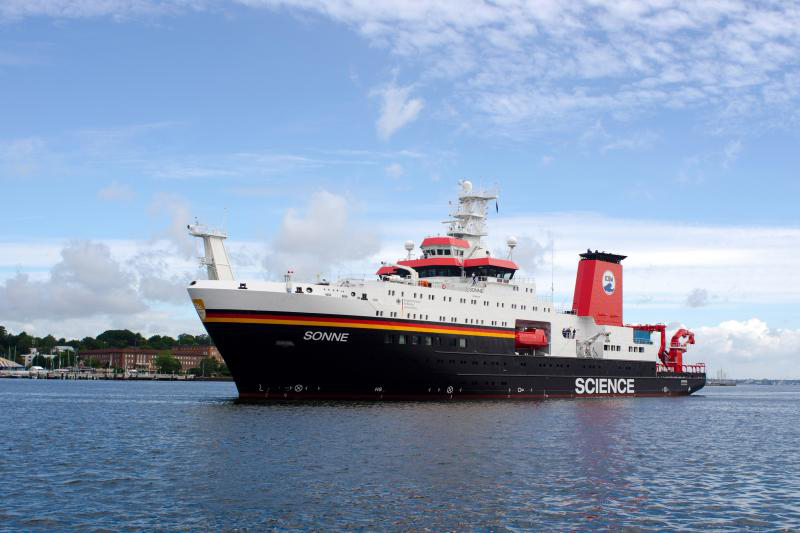SONNE SO243
- Area:
- Eastern South Pacific
- Time:
-
06.10.2015 - 22.10.2015
- Institution:
- GEOMAR
- Chief scientist:
- Christa Marandino
Dissolved oxygen (DO) concentrations in oceanic regions are declining due to global climate change, resulting in an expansion of oxygen minimum zones (OMZs) and DO decreases in existing OMZs. As a principle determinant of redox state, DO availability plays a key role in regulating biogeochemical processes and nutrient cycles. The availability of redox sensitive trace metals important for various biological production pathways such as those that lead to trace gas production is also impacted by low DO conditions. ASTRA-OMZ provides an ideal opportunity to examine
1) the impact of DO in regulating trace gas distributions, and
2) how different biological (e.g. phytoplankton derived surfactants) and physical (e.g. upwelling) variables influence sea-to-air gas exchange.
ASTRA-OMZ is a unique platform for multidisciplinary research on OMZs, with chemical, biological, and physical oceanographers working in collaboration with atmospheric scientists. Understanding the role that OMZs play in the formation of trace gases, as well as the factors that regulate their air-sea exchange, is critical if we are to accurately estimate the supply of trace gases to the atmosphere and begin to predict how this supply may change under future oceanic DO scenarios.



